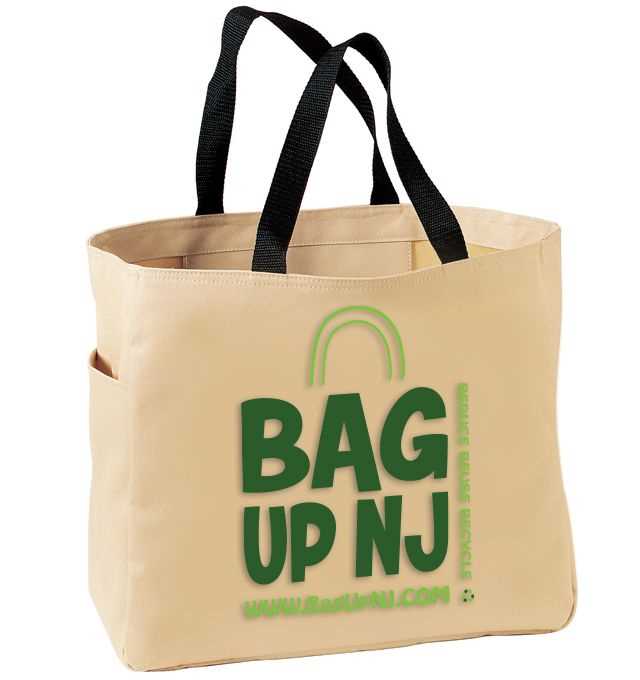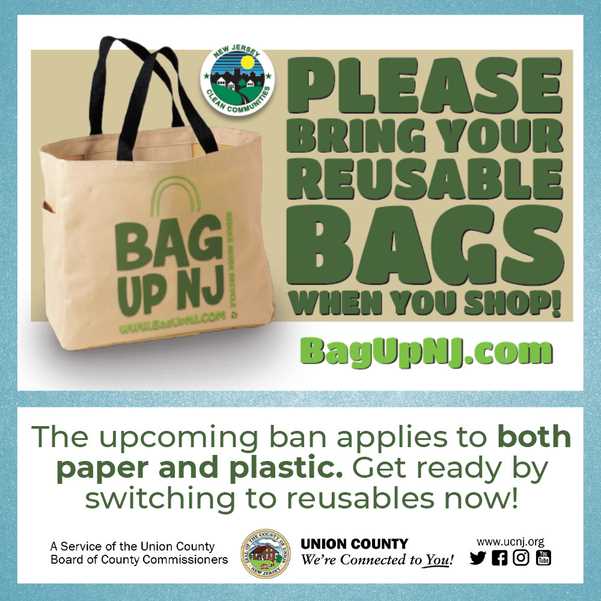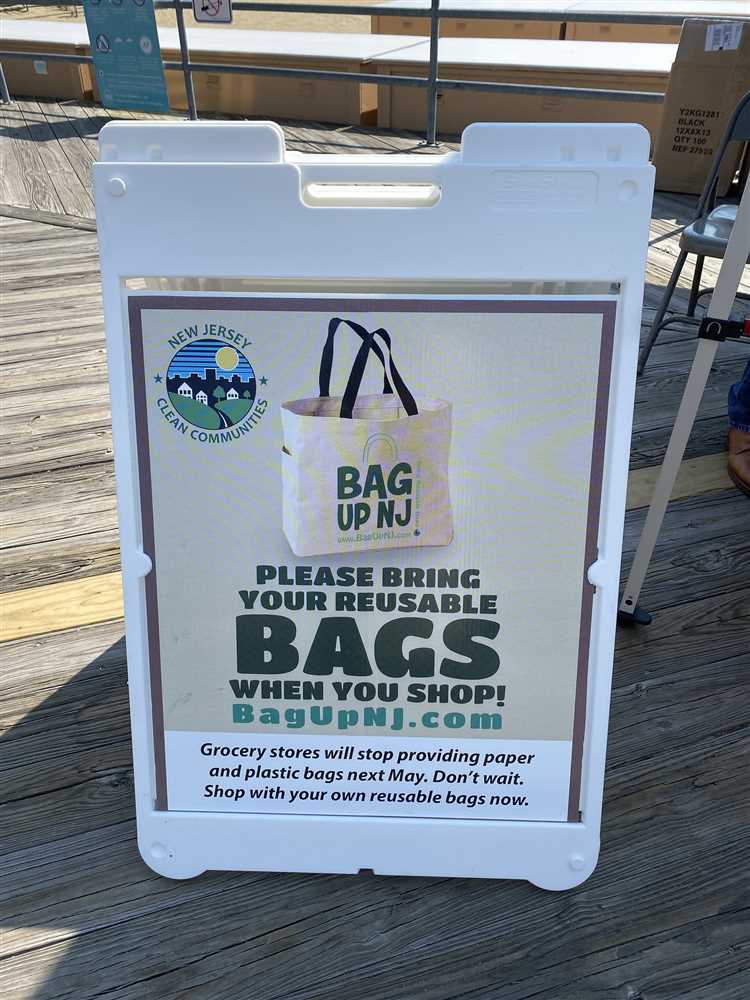
In an effort to reduce plastic waste and promote a more sustainable future, New Jersey has implemented a plastic bag ban. This significant step in becoming a greener state aims to mitigate the negative environmental impacts caused by single-use plastic bags.
The plastic bag ban is a crucial move towards creating a more sustainable and eco-friendly environment. Single-use plastic bags have long been a major contributor to pollution, harming wildlife and posing a threat to our ecosystems. By implementing this ban, New Jersey is taking a proactive approach to mitigate the damage caused by plastic pollution.
The ban encourages consumers to make the switch to reusable bags, which are much more environmentally friendly and durable. These bags can be used multiple times and significantly reduce the amount of plastic waste generated. By embracing reusable bags, New Jersey residents can play a vital role in creating a cleaner, greener state for future generations.
- The Environmental Impact of Plastic Bags
- Plastic Bag Bans around the World
- The Benefits of the New Jersey Plastic Bag Ban
- Supporting Businesses through the Transition
- Educational Programs
- Collaboration with Chambers of Commerce
- Community Engagement and Education
- A Brighter Future for New Jersey
- FAQ:
- What is the purpose of the New Jersey plastic bag ban?
- How will the plastic bag ban affect businesses in New Jersey?
- What are the penalties for violating the plastic bag ban in New Jersey?
- How will the plastic bag ban benefit the environment?
- Are there any exemptions to the New Jersey plastic bag ban?
- Why did New Jersey decide to ban plastic bags?
- When will the plastic bag ban go into effect in New Jersey?
The Environmental Impact of Plastic Bags

Plastic bags have become one of the most common and harmful forms of pollution in our environment. While they may seem convenient for carrying groceries or other items, their impact on our planet is severe. Here are some of the ways that plastic bags are causing environmental damage:
1. Pollution: Plastic bags are non-biodegradable, which means they do not decompose naturally. Instead, they break down into smaller pieces called microplastics. These microplastics can contaminate soil, waterways, and oceans, posing a significant threat to wildlife and entire ecosystems.
2. Wildlife Threat: Marine animals and land animals often mistake plastic bags for food, leading to injury or death. Sea turtles, for example, can easily mistake floating plastic bags for jellyfish, one of their main food sources. Ingesting plastic bags can cause digestive issues and starvation, and can also lead to entanglement in fishing gear.
3. Plastic Bag Production: The production of plastic bags requires significant amounts of fossil fuels, contributing to greenhouse gas emissions and climate change. Additionally, the manufacturing process consumes large quantities of energy, water, and other resources, further exacerbating environmental issues.
4. Litter: Plastic bags are notorious for their contribution to litter, as they are lightweight and easily carried by the wind. This litter not only looks unsightly but can also clog storm drains and contribute to flooding in urban areas. Cleanup efforts for plastic bag litter are costly and time-consuming.
5. Recycling Challenges: While plastic bags can technically be recycled, the reality is that they often end up in landfills or incinerated. The thin and flexible nature of plastic bags makes them difficult to process in recycling facilities, and they can easily get tangled in machinery, causing damage and delays.
In conclusion, the environmental impact of plastic bags is vast and significant. By implementing a ban on plastic bags, New Jersey is taking a step towards a greener and more sustainable future, reducing pollution, protecting wildlife, and conserving resources.
Plastic Bag Bans around the World
As New Jersey joins the growing number of regions implementing plastic bag bans, it’s important to take a look at other places around the world where similar bans have been successful in reducing plastic waste and promoting a more sustainable lifestyle.
1. Rwanda:
- Rwanda is often hailed as one of the most environmentally conscious countries in Africa.
- In 2008, it became the first country in the world to implement a total ban on plastic bags.
- This ban has significantly reduced plastic pollution in the country and has led to a cleaner and greener environment.
2. Bangladesh:
- Bangladesh was the first country to ban thinner plastic bags in 2002 after they were found to be a major cause of flooding during monsoon seasons.
- Since the ban, there has been a noticeable decrease in plastic bag litter, and the country has become a leader in finding sustainable alternatives.
3. Kenya:
- In 2017, Kenya implemented one of the world’s toughest plastic bag bans with penalties of up to $38,000 or a four-year jail term for using, manufacturing, or importing plastic bags.
- The ban has led to a significant reduction in plastic bag litter and has sparked innovation in the production of eco-friendly bags made from alternatives such as sisal, paper, and cloth.
4. Italy:
- In 2011, Italy implemented a nationwide ban on non-biodegradable plastic bags.
- This ban has been successful in reducing plastic waste and has encouraged consumers to use reusable bags.
- Local municipalities in Italy also offer incentives such as tax breaks for businesses that provide compostable bags instead of plastic.
5. Australia:
- Australia has a mix of state and local bans on lightweight plastic bags.
- South Australia was the first state to introduce a ban in 2009, followed by other states and territories.
- The bans have resulted in a significant decrease in plastic bag usage and have prompted consumers to adopt more sustainable options.
These examples demonstrate that plastic bag bans are an effective solution for reducing plastic waste and promoting sustainable practices. They show that with government support, public awareness, and the availability of alternatives, a greener future is possible for New Jersey and the rest of the world.
The Benefits of the New Jersey Plastic Bag Ban

The implementation of the New Jersey plastic bag ban brings a multitude of benefits for both the environment and the local community. By reducing the use of plastic bags, the state is taking a significant step towards a greener and more sustainable future.
- Environmental Conservation: One of the primary benefits of the plastic bag ban is the conservation of the environment. Plastic bags are known to have a detrimental impact on wildlife, marine ecosystems, and natural habitats. By eliminating their use, New Jersey is actively working towards protecting these precious resources.
- Reduced Litter: Plastic bags are notorious for being a major source of litter. They often end up in rivers, lakes, and public spaces, creating an eyesore and posing a threat to wildlife. By banning plastic bags, New Jersey aims to greatly reduce litter and maintain cleaner, more attractive communities.
- Healthier Ecosystems: Plastic bags take a considerable amount of time to decompose, often hundreds of years. During this period, they release harmful toxins into the environment, polluting the air, soil, and water. The ban on plastic bags will help create healthier ecosystems by preventing the accumulation of these toxins.
- Encouraging Sustainable Alternatives: The plastic bag ban encourages the use of more sustainable alternatives, such as reusable bags. These bags can be used multiple times, reducing the demand for single-use plastics and minimizing waste. This shift towards sustainable options promotes a circular economy and fosters responsible consumer behavior.
- Cost Savings: Plastic bags are not only harmful to the environment but also expensive to produce and manage. By eliminating their use, New Jersey can save money on the production and disposal of plastic bags. These cost savings can then be redirected towards other important initiatives, such as environmental conservation and education programs.
Overall, the New Jersey plastic bag ban brings numerous benefits to the state and its residents. By prioritizing sustainability, the ban helps protect the environment, reduce litter, preserve ecosystems, promote sustainable alternatives, and save costs. It is a significant step towards creating a greener and more sustainable state for future generations.
Supporting Businesses through the Transition
The implementation of the New Jersey plastic bag ban will undoubtedly require businesses to make adjustments to their operations. However, the state government is committed to supporting businesses through this transition period.
One way the government is assisting businesses is by providing resources and information about sustainable alternatives to plastic bags. It is working closely with organizations and experts to educate businesses about the benefits of using reusable bags or other sustainable options.
In addition, the government has implemented a grace period to allow businesses time to adjust their practices. During this period, businesses will have the opportunity to use up their existing stock of plastic bags and gradually transition to more sustainable alternatives. This approach aims to minimize the financial impact on businesses while promoting the long-term goal of reducing plastic waste in the state.
The government is also exploring potential funding options to facilitate the transition. It is considering the establishment of grants or low-interest loans to support businesses in investing in reusable bags or other sustainable alternatives. This financial support would help alleviate the upfront costs of transitioning and encourage businesses to embrace more environmentally-friendly practices.
Educational Programs
In conjunction with the plastic bag ban, the government plans to implement educational programs to raise awareness among both businesses and consumers. These programs will provide information about the environmental impact of plastic bags and the benefits of using reusable alternatives. By educating businesses and the public, the government aims to create a culture of sustainability and encourage widespread adoption of eco-friendly practices.
Collaboration with Chambers of Commerce

The government recognizes the importance of collaboration with local chambers of commerce to ensure a smooth transition for businesses. It is actively engaging with chambers of commerce across the state to address any concerns and provide support. By working together, the government and local businesses can find innovative solutions and create a sustainable future for New Jersey.
Community Engagement and Education
Community engagement and education are key aspects of implementing the plastic bag ban in New Jersey. By involving the community in the decision-making process and providing education on the environmental impact of plastic bags, we can ensure a smoother transition and increase public support for the ban.
One of the strategies for community engagement is conducting outreach programs and workshops. These programs can be organized by local environmental organizations, government agencies, or community groups. They can include educational presentations, hands-on activities, and discussions about the benefits of reducing plastic bag usage.
In addition to workshops, it is important to establish partnerships with local businesses and retailers. By working together, we can create incentives and alternatives to plastic bags. This can include offering discounts on reusable bags, providing convenient recycling options, or introducing innovative packaging solutions.
Another effective way to engage the community is through online platforms and social media. By sharing information, tips, and success stories, we can motivate individuals to adopt sustainable practices and spread awareness about the plastic bag ban. Online campaigns can also encourage residents to take pledges or participate in community clean-up events.
| Benefits of Community Engagement | Methods of Education |
|---|---|
| Increases public awareness about the environmental impact of plastic bags | Workshops and educational presentations |
| Promotes behavior change and encourages the use of reusable bags | Partnerships with local businesses and retailers |
| Builds a sense of community ownership and responsibility | Online platforms and social media campaigns |
| Enhances public support for the plastic bag ban | Community clean-up events and pledges |
In conclusion, community engagement and education play a vital role in the implementation of the plastic bag ban in New Jersey. By involving the community, providing education, and creating incentives, we can work towards a greener and more sustainable state.
A Brighter Future for New Jersey

New Jersey is taking a major step towards a greener and more sustainable future with the implementation of the plastic bag ban. This ban will not only reduce waste and pollution, but it will also encourage residents to make more eco-friendly choices and promote the use of reusable bags.
By banning single-use plastic bags, New Jersey is joining a growing list of states and cities around the world that are taking action to combat the plastic pollution crisis. Plastic bags are one of the most common forms of litter and have a devastating impact on the environment, particularly on marine life.
The ban will encourage residents to switch to reusable bags, which are not only more durable but also more stylish and versatile. Reusable bags come in a variety of colors and designs, allowing individuals to express their personal style while also doing their part to protect the planet.
In addition to the plastic bag ban, New Jersey is also exploring other sustainable solutions to further reduce waste and promote recycling. One such solution is the implementation of a bottle deposit system, which has proven to be successful in other states.
A bottle deposit system would encourage individuals to return their empty bottles for recycling by offering a small cash refund. This not only incentivizes recycling but also reduces litter and encourages a more circular economy.
Furthermore, New Jersey is investing in educational programs to raise awareness about the environmental impact of plastic waste and promote sustainable practices. By educating residents, especially the younger generation, about the importance of reducing waste and using eco-friendly alternatives, New Jersey is ensuring a brighter and greener future for generations to come.
| Benefits of the Plastic Bag Ban |
|---|
| Reduces plastic waste |
| Prevents pollution |
| Encourages the use of reusable bags |
| Protects marine life |
| Promotes a more sustainable lifestyle |
In conclusion, the plastic bag ban in New Jersey is a significant step towards a greener and more sustainable future. By reducing waste, preventing pollution, and promoting eco-friendly alternatives, New Jersey is leading the way in creating a brighter future for generations to come.
FAQ:
What is the purpose of the New Jersey plastic bag ban?
The purpose of the New Jersey plastic bag ban is to reduce the usage of single-use plastic bags in order to protect the environment and promote sustainability.
How will the plastic bag ban affect businesses in New Jersey?
The plastic bag ban will require businesses to find alternative packaging options, such as reusable bags or paper bags. It may initially incur some additional costs for businesses, but in the long run, it will help to create a greener image for the businesses and attract environmentally-conscious customers.
What are the penalties for violating the plastic bag ban in New Jersey?
The penalties for violating the plastic bag ban in New Jersey vary depending on the frequency and severity of the violation. They may include fines ranging from $500 to $5,000 per violation or the potential suspension of a business license.
How will the plastic bag ban benefit the environment?
The plastic bag ban will benefit the environment by reducing plastic pollution, decreasing the amount of waste in landfills, and protecting wildlife. Single-use plastic bags are a major contributor to pollution and take hundreds of years to decompose.
Are there any exemptions to the New Jersey plastic bag ban?
Yes, there are exemptions to the New Jersey plastic bag ban. Certain types of plastic bags, such as those used for pharmacy prescriptions, produce, or bulk items, are exempt from the ban. Additionally, small businesses with fewer than ten employees are granted a one-year exemption to transition to alternative packaging options.
Why did New Jersey decide to ban plastic bags?
New Jersey decided to ban plastic bags in order to reduce plastic waste and promote a more sustainable and environmentally friendly state. Plastic bags are known to contribute significantly to pollution and harm wildlife, so the ban is a step towards a greener future.
When will the plastic bag ban go into effect in New Jersey?
The plastic bag ban in New Jersey is set to go into effect on March 1, 2022. This means that starting from that date, businesses will no longer be allowed to provide single-use plastic bags to their customers.